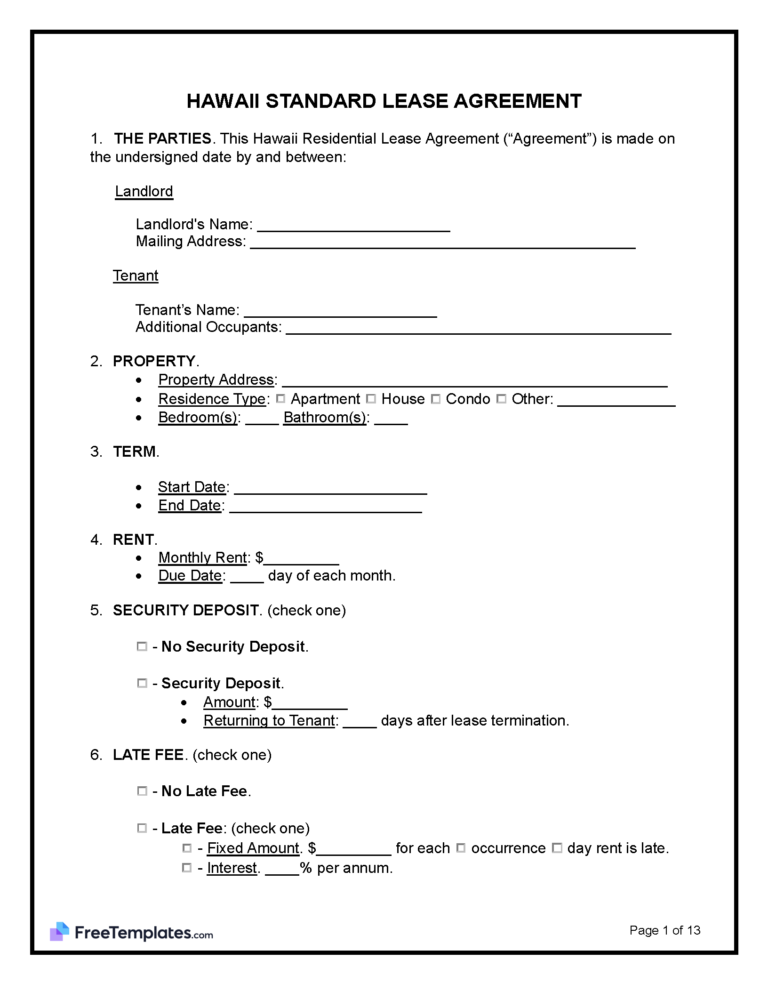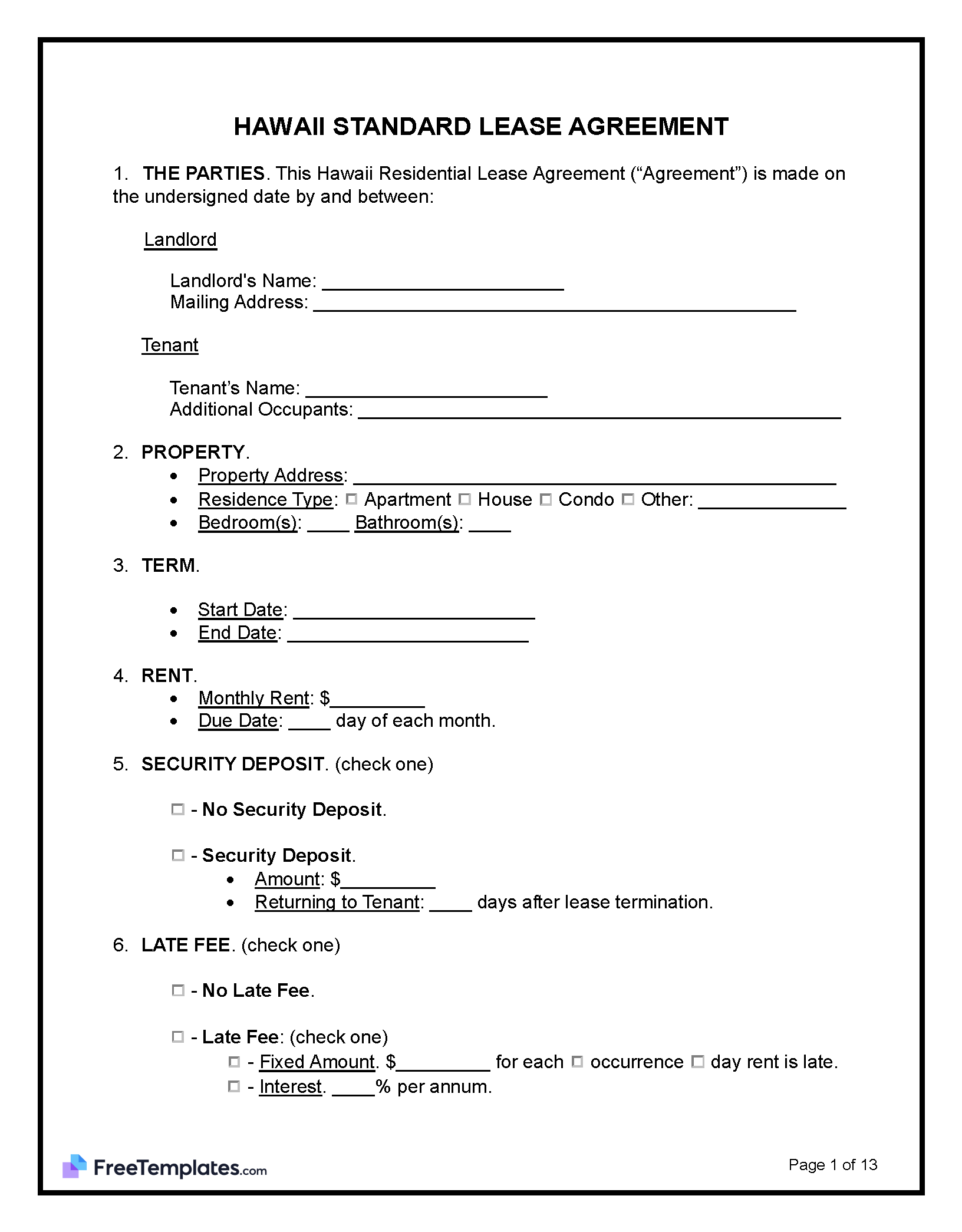Disclosures
Landlord’s Contact Details – Prior to moving in, the tenant must have in writing the name and address of the authorized person to manage the property and the person responsible for rent, legal notices, and demands. If the owner or landlord lives on another island, they must have an authorized agent on the island to act on their behalf. (HRS § 521-43(A)) (HRS § 521-43(F))
Lead-Based Paint Disclosure – If the residential rental property was built before January 1, 1978, the landlord must inform the potential tenant if there is any mold on the interior walls and provide an informational pamphlet on how to mitigate and identify exposure.
Mold Disclosure – Tenants must be made aware of any mold in any residential property. (HRS § 508D-11(3a))
Rent Grace Period
Security Deposit
Maximum Amount – Landlords cannot charge more than 1 month’s rent for a security deposit. A Pet Fee may be extra for non-service animals. (HRS §521-44(2))
Returning – The landlord has 14 days to return the deposit in full or provide an itemized list of damages, unpaid rent, or unreturned keys, with any remaining balance. (HRS §521-44(c))
- Deductions – The landlord must notify the tenant in writing within 14 days of any deductions for damages other than normal wear and tear or unpaid rent. The notification should include invoices or estimates for the repairs. (HRS §521-44(c))
- Tenant Doesn’t Forward New Address – The landlord will send it to the tenant’s last known address.

